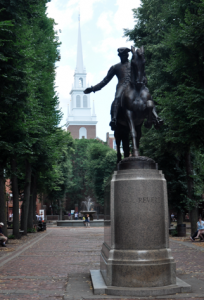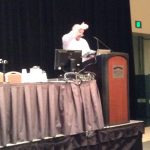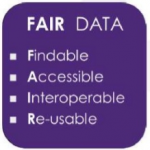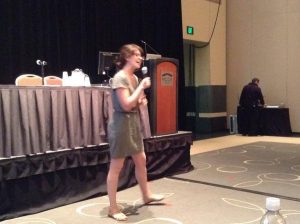Continuing the push beyond static documents. ISMB, and more on our “What Bioinformaticians need to know about digital publishing beyond the PDF2” workshop
Boston 2014: More than a (Bioinformatics) Feeling
 Following from our previous posting on BOSC, our birthday and the BMC Open Data award party in Boston, on top of having to dash between the many great talks and sessions at ISMB, we were kept even busier than usual helping to organize and present in a special Beyond-the-PDF inspired “What Bioinformaticians need to know about digital publishing beyond the PDF” workshop at the end of the conference. Coming in the year that Illumina are hoping to make human clinical genome sequencing affordable with new sequencing platforms, one noticeable trend this year was a larger number of talks dealing with a lot of the clinical implications of this data bonanza. On top of great keynotes from Russ Altman and Isaac Kohane (see the write up of his talk from Amye), the Harnessing “Genetic Diversity to Enable Personalized Medicine” workshop track featuring Atul Butte also covered a lot of this area. Another highlight was the microbiome track, particularly Eric Alm’s work (just published in Genome Biology) looking at the individuality of the microbial signal from 10,000 observations of diet, health, wellness, and behavior over a year.
Following from our previous posting on BOSC, our birthday and the BMC Open Data award party in Boston, on top of having to dash between the many great talks and sessions at ISMB, we were kept even busier than usual helping to organize and present in a special Beyond-the-PDF inspired “What Bioinformaticians need to know about digital publishing beyond the PDF” workshop at the end of the conference. Coming in the year that Illumina are hoping to make human clinical genome sequencing affordable with new sequencing platforms, one noticeable trend this year was a larger number of talks dealing with a lot of the clinical implications of this data bonanza. On top of great keynotes from Russ Altman and Isaac Kohane (see the write up of his talk from Amye), the Harnessing “Genetic Diversity to Enable Personalized Medicine” workshop track featuring Atul Butte also covered a lot of this area. Another highlight was the microbiome track, particularly Eric Alm’s work (just published in Genome Biology) looking at the individuality of the microbial signal from 10,000 observations of diet, health, wellness, and behavior over a year.
On top of “big data”, another hot topic that made the now traditional #ISMBBingo score sheet was STAP cells, thanks to the continuing fall out from the now retracted acid bath stem cell papers in Nature. With issues regarding reproducibility of growing prominence this year, it was a good time to take it out of its usual home as a topic in the BOSC program to the main conference with a second edition of our digital publishing workshop that specifically focuses on these issues. As with last year, the organizing committee (including our editor Scott Edmunds, Jun Zhao from Lancaster University, Marco Roos and Barend Mons from LUMC, our editorial board members Carole Goble and Susanna Sansone, and Amye Kenall representing our BioMed Central publishers) put together a fantastic line up of people at the forefront of digital publishing and scholarly communication. Compared to last year, rather than presenting we took more of a back seat in the workshop organization, but topics covered many of our collaborations and key areas of interest.
Workshop 2: Further Beyond the PDF
 Being the penultimate session of the conference it was a challenge to get people to stick around, but we were lucky not to be the workshop that clashed with the world cup final. The great line-up, plus the promise of it being the last chance to get hold of our (unfortunately too) popular Bruce Lee/Kill Bill inspired “FREE DATA” t-shirts managed to draw an even bigger crowd than last year. Two of the originally advertised participants Carole Goble and Phil Bourne unfortunately had commitments crop up that took them away from the conference earlier than expected, but our last minute replacement chair (and board member) Francis Ouellette did a fantastic job keeping everyone on time with his quacking buzzer.
Being the penultimate session of the conference it was a challenge to get people to stick around, but we were lucky not to be the workshop that clashed with the world cup final. The great line-up, plus the promise of it being the last chance to get hold of our (unfortunately too) popular Bruce Lee/Kill Bill inspired “FREE DATA” t-shirts managed to draw an even bigger crowd than last year. Two of the originally advertised participants Carole Goble and Phil Bourne unfortunately had commitments crop up that took them away from the conference earlier than expected, but our last minute replacement chair (and board member) Francis Ouellette did a fantastic job keeping everyone on time with his quacking buzzer.
As with last year, we need to thank our overqualified list of speakers, panelists and supporters who help make it a success, and this time we had more of a focus on peer review and software. This lead nicely into a final discussion section expertly hosted by Mozilla Science’s Kaitlin Thaney, and was particularly topical with Mozilla Sciences “Code as a Research Object” program seeking feedback and contributors. All of the discussion is archived in a handy Storify, and we’ll also include brief summaries and links to the slides of the talks below.
Ciaran O’Neill & Amye Kenall: Peering into review – Innovation, credit & reproducibility [slides]
Ciaran and Amye from BMC set the scene and gave a great overview of current innovations and alternative models of Peer Review, both at BMC and beyond. Ciaran covered more of the models and policy side, with Amye getting into some technical challenges and experiments with more dynamic papers (including our Knitr generated electrophysiology paper).
Alejandra González-Beltrán: What was the plan? A role for data standards, models and computational workflows in scholarly data publishing [slides]
Alejandra provided an update on the talk we presented last year on the case study that we’ve been carrying out with the ISA-commons, Research Object and Nanopublication communities. Despite having to talk over the disruption from the feeding frenzy to get hold the last of our t-shirts, Alejandra did an excellent job presenting on the experiments in reproducibility and improving experimental descriptions that we have been carrying out. On top of giving great insight into the hows and whys of these data models, some practical tools such as the Ontomaton widget for ontology annotation were presented.
Barend Mons: Trends in data publishing [slides]
 Barend followed with more on Nanopublications and Research Objects, but putting them in context of what he is now calling “FAIR” data, making datasets: Findable, Accessible, Interoperable, and Re-usable. With ELIXIR now promoting these principles too through the FAIRport initiative, Barend presented on examples of large scale datasets they have turned into FAIR digital objects using these types of tools. Most interesting to us was they experiments with “bring-your-own-data” parties, as this overlaps very much with the metabolomics hackathon we organised at almost the same time in Hong Kong. Watch this space for further developments in this area, as it is an idea we are all keen to continue with.
Barend followed with more on Nanopublications and Research Objects, but putting them in context of what he is now calling “FAIR” data, making datasets: Findable, Accessible, Interoperable, and Re-usable. With ELIXIR now promoting these principles too through the FAIRport initiative, Barend presented on examples of large scale datasets they have turned into FAIR digital objects using these types of tools. Most interesting to us was they experiments with “bring-your-own-data” parties, as this overlaps very much with the metabolomics hackathon we organised at almost the same time in Hong Kong. Watch this space for further developments in this area, as it is an idea we are all keen to continue with.
Kaitlin Thaney: Software Review. Q&A and audience participation.
 The workshop was then closed with an interactive/participative session expertly chaired by Kaitlin Thaney. Asking questions such as “how can code be reused in a frictionless way?”, this covered themes such as code review and the lack of career incentives and progression for software producers. With some quite lively debate the track nicely brought a lot of the many threads in the workshop together, and despite the cavernous dimensions of the ballroom provided some nice feedback and contributions from the audience.
The workshop was then closed with an interactive/participative session expertly chaired by Kaitlin Thaney. Asking questions such as “how can code be reused in a frictionless way?”, this covered themes such as code review and the lack of career incentives and progression for software producers. With some quite lively debate the track nicely brought a lot of the many threads in the workshop together, and despite the cavernous dimensions of the ballroom provided some nice feedback and contributions from the audience.
It was encouraging to receive positive on the workshop again, and we look forward to further Guinness fueled discussions on these topics at ISMB2015 in Dublin. Our next workshop covering similar open science topics will be just after the International Conference on Systems Biology in Australia in September, so if you are in Melbourne on the 19th September please come along. Registration is free.
Further Reading
Storify of the Workshop: https://storify.com/GigaScience/what-bioinformaticians-need-to-know-about-digital